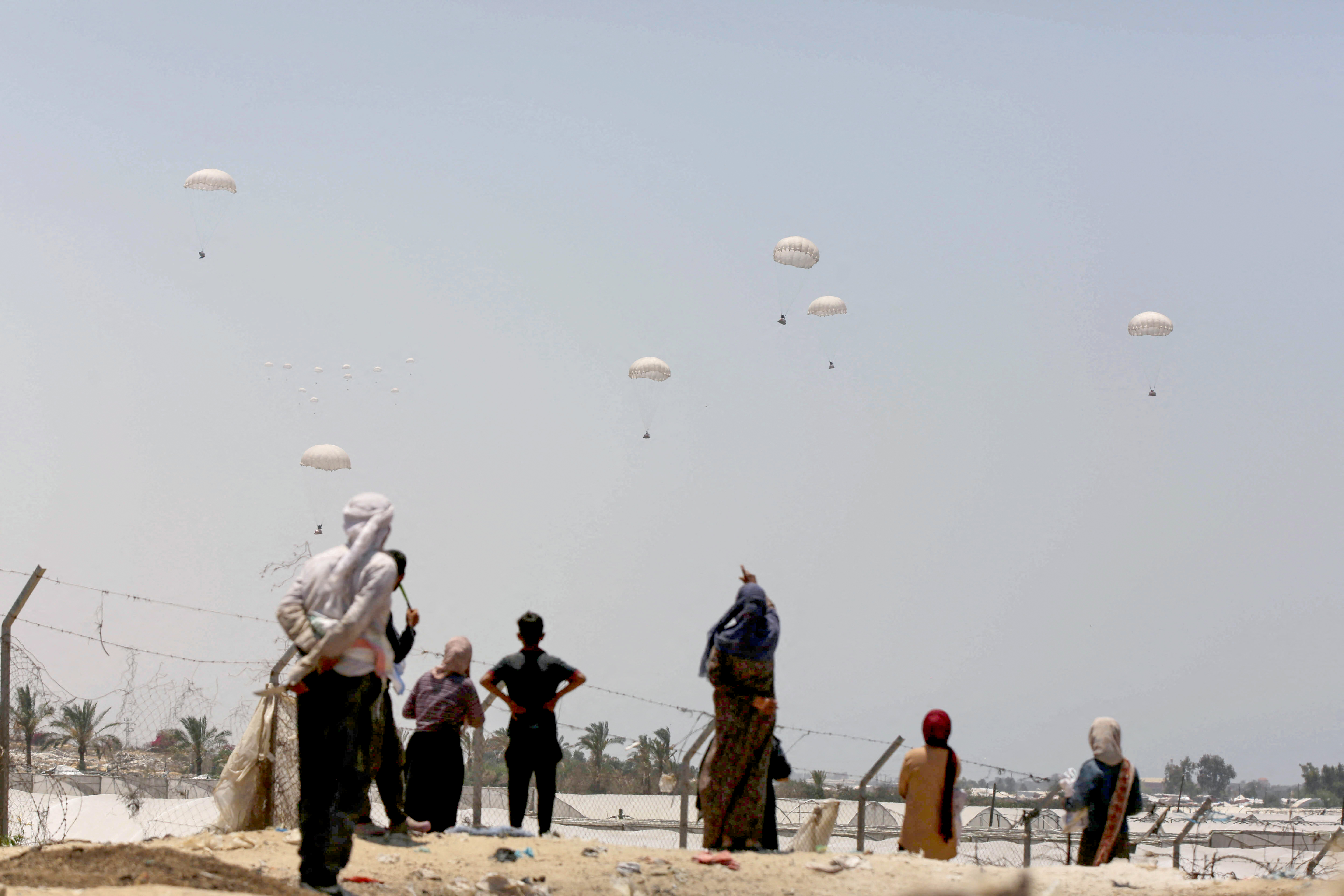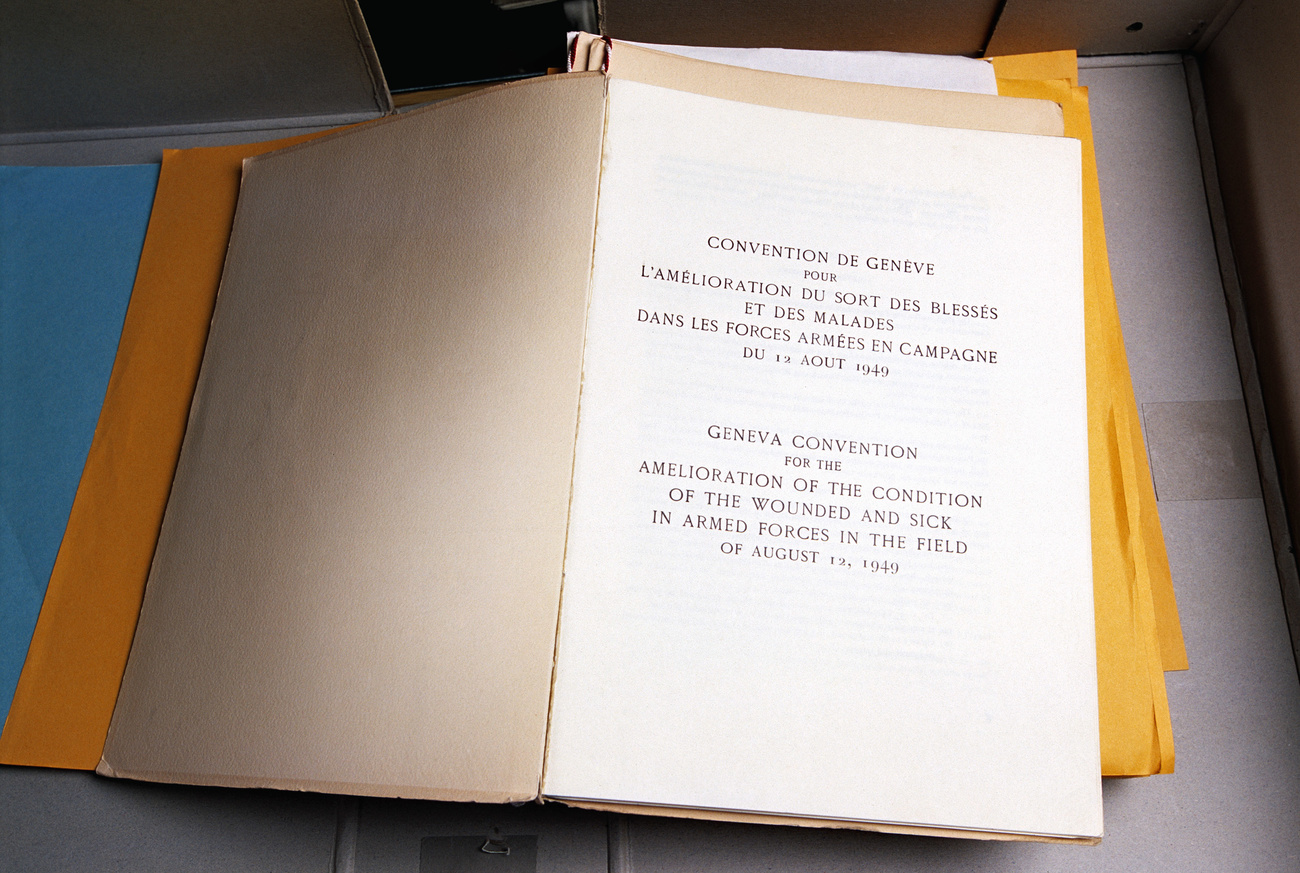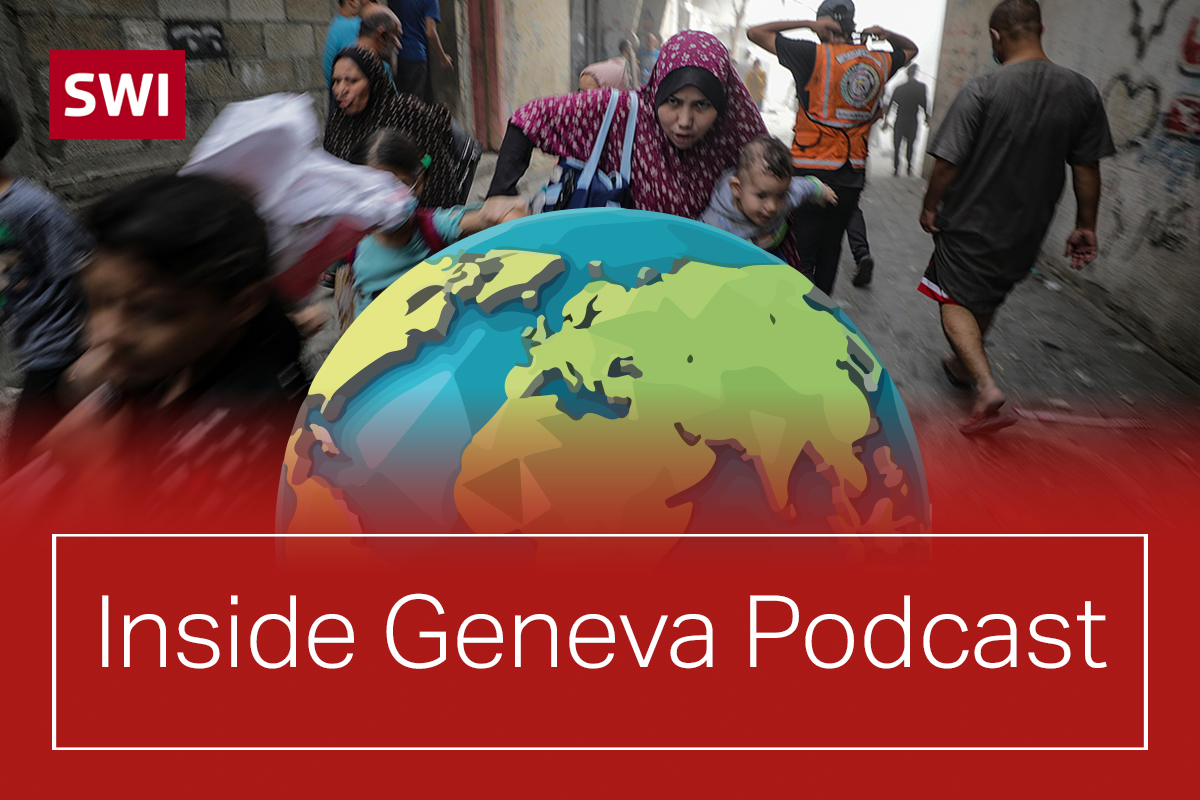Humanitarian law: bleak headlines, but not all bad news

International humanitarian law is supposed to protect people in times of war. As is clear from the news, it’s often ignored. Less well-known are the many cases when warring parties respect it – whether due to reputational or legal fears.
Whether in Ukraine, Sudan or Gaza, humanitarian organisations repeatedly call on warring parties to respect international humanitarian law (IHL). However, “all humanitarian aid workers know from their daily work that IHL is not respected,” the UN High Commissioner for Refugees, Filippo Grandi, recently told the UN Security Council. Basic rules of war are not respected, more and more civilians are getting killed, sexual violence is becoming weaponised, civilian infrastructure is being destroyed, and humanitarian aid workers are being targeted.
“The aim of IHL is to protect those affected by armed conflict,” explains Anne Quintin, head of the IHL Legal Advisory Service at the Geneva-based International Committee of the Red Cross (ICRC).
IHL is based on the four Geneva Conventions of 1949, which all states have ratified – and thus are bound to respect. The ICRC meanwhile is mandated to ensure the correct application of the international laws of war, and works with states to ensure they understand their obligations. For example, IHL must be integrated into legislation and military training.
One of its most important provisions is that warring parties must protect the civilian population and only attack military targets. In addition, military operations must remain proportionate – which is why the use of large bombs in densely populated urban areas in Gaza and Ukraine has caused such concern.
Want to read our weekly top stories? Subscribe here.
Protective mechanism
Another basic rule is that hospitals are protected, Quintin says. If a hospital is used by fighters, the first question for the other side is whether the institution then loses its protected status and becomes a military target. But it must also be clarified whether the entire hospital or just part of it becomes a target. If so, the enemy must be warned and asked to stop using the hospital for military purposes. And it must be given a reasonable period of time to do this.
The proportionality of a planned military operation must also be examined. What impact will it have on the civilian population? What are the medium-term consequences for treatment in hospitals if, for example, electricity generators are destroyed? Protective measures must also be taken to minimise the impact. And the population must be warned of an attack.
Christopher Lockyear, Secretary General of Médecins Sans Frontières (MSF), thinks protective measures and proportionality have both been violated in Gaza. “There is no question in my mind that IHL is being wilfully disregarded,” he tells SWI swissinfo. Hunger is being used as a weapon, he says, and with over 38,000 people now killed, proportionality is not being respected. Lockyear also says that in many cases Israel does not warn the population adequately in advance of attacks. Orders to leave are issued at too short notice to be able to safely evacuate hospitals, he says.

Question of perception
Is there thus less compliance with IHL today than a few years ago? This is impossible to answer, says Quintin – there are no scientific studies to decide the question. She believes it is a question of perception. The media often report on violations, but hardly ever when IHL is respected, she says. And being able to follow events on social networks practically in real time gives the impression that many more violations are being committed than years ago.
Yet in many cases humanitarian rules are in fact respected on a daily basis, Quintin says. Every time a warring party refrains from military action because too many civilians are affected, every time the ICRC is able to visit prisoners, talk to conflict parties, or provide humanitarian aid, IHL is respected.
Wide acceptance
Why is worth it for warring parties to comply? The fact that all states have ratified the Geneva Conventions shows the extent of acceptance for them, says Quintin. Some states want to comply with IHL for economic reasons, i.e. to avoid sanctions by other states. Others want to position themselves as champions of IHL – a good reputation can boost support among domestic electorates. And finally, if one side allows ICRC visits to prisoners of war and treats them humanely, the other side will tend to do the same.
Many armed non-state groups are also sensitive about reputation. In particular, groups which aim to one day form a government want to be seen as credible – and on the international stage, such credibility hinges on respecting IHL, Quintin says.

More
Inside Geneva Podcast: is international law dead?
According to the common first article of the Geneva Conventions, third states also have a duty not to contribute to IHL violations, for example by selling weapons to governments or groups who use them to commit war crimes. This is why some western states – for example, the UK – are examining the legality of arms exports to Israel.
IHL has also evolved. For example, the use of anti-personnel mines has only been banned for ratifying member states since the Ottawa Convention of 1997, while cluster bombs have been banned since 2008. Since 2014, the Arms Trade Treaty (ATT) has also outlawed the export of conventional weapons to countries at war if war crimes or genocide may be committed with them.
Avoiding violations
Andrew Clapham, a professor of international law at the Geneva Graduate Institute, points out that IHL offers warring parties the opportunity to avoid possible violations and the risk of becoming war criminals. “The events of the past few months have made people realise that calling someone a potential war criminal has a huge impact,” he recently told SWI swissinfo.ch’s “Inside Geneva podcast” (see below).

More
How the Israeli-Palestinian war challenges humanitarian aid
If politicians such as Russian President Vladimir Putin or Israeli Prime Minister Benjamin Netanyahu are labelled war criminals, then those who support them are technically aiding and abetting potential war crimes, said Clapham (the International Criminal Court has issued an arrest warrant for Putin; the court’s prosecutor has also applied for an arrest warrant for Netanyahu).
Shifting picture
Clapham explained that states could also be held accountable for such cooperation, if judges come to the conclusion that there is a risk of exported weapons being used to commit war crimes.
Recently in the Netherlands, for example, the Court of Appeal in The Hague ordered the Dutch government to block the delivery of parts for F-35 fighter jets to Israel. The reason: a fear that the parts could be used for violations of IHL. And in May, Spain, also an ATT signatory, tried to block the delivery of arms to Israel by refusing to allow a ship transporting weapons from India to dock at a Spanish harbour. Spanish Foreign Minister José Manuel Albares said at the time that the Middle East did not need more arms, but more peace.
Meanwhile the private Norwegian pension fund KLP, which manages around $90 billion (CHF80.9 billion), said at the end of June that it would no longer invest in US company Caterpillar: there was a risk that the firm’s equipment in Gaza and the West Bank could contribute to human rights and international law violations, KLP said.
Caterpillar has long supplied Israel with bulldozers which it has then used in the West Bank to demolish Palestinian homes to make way for Israeli settlements (in violation of international law), KLP wrote. The Israeli army has also reportedly used Caterpillar machines in the Gaza war.
Ultimately, despite daily headlines about violations and atrocities, the rules of international law and the Geneva Conventions are in fact often quietly respected. Sometimes, if not always, they can prevent warring parties and their allies from committing or supporting war crimes.
Edited by Imogen Foulkes/dos

In compliance with the JTI standards
More: SWI swissinfo.ch certified by the Journalism Trust Initiative








You can find an overview of ongoing debates with our journalists here . Please join us!
If you want to start a conversation about a topic raised in this article or want to report factual errors, email us at english@swissinfo.ch.